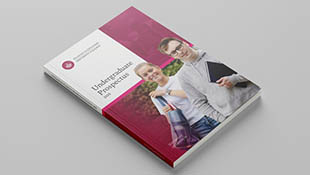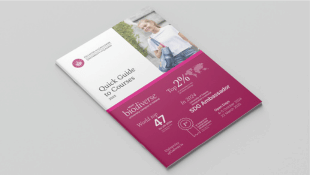-
Courses

Courses
Choosing a course is one of the most important decisions you'll ever make! View our courses and see what our students and lecturers have to say about the courses you are interested in at the links below.
-
University Life

University Life
Each year more than 4,000 choose University of Galway as their University of choice. Find out what life at University of Galway is all about here.
-
About University of Galway

About University of Galway
Since 1845, University of Galway has been sharing the highest quality teaching and research with Ireland and the world. Find out what makes our University so special – from our distinguished history to the latest news and campus developments.
-
Colleges & Schools

Colleges & Schools
University of Galway has earned international recognition as a research-led university with a commitment to top quality teaching across a range of key areas of expertise.
-
Research & Innovation

Research & Innovation
University of Galway’s vibrant research community take on some of the most pressing challenges of our times.
-
Business & Industry

Guiding Breakthrough Research at University of Galway
We explore and facilitate commercial opportunities for the research community at University of Galway, as well as facilitating industry partnership.
-
Alumni & Friends

Alumni & Friends
There are 128,000 University of Galway alumni worldwide. Stay connected to your alumni community! Join our social networks and update your details online.
-
Community Engagement

Community Engagement
At University of Galway, we believe that the best learning takes place when you apply what you learn in a real world context. That's why many of our courses include work placements or community projects.
Information for Coordinators
How to nominate students?
Nominating Students
- We would request that you nominate only as many students as specified in our bilateral agreement.
- Additionally, unless there is a prior, mutually agreed alternative arrangement, where the bilateral agreement mentions a stay of one full academic year, this should not be interpreted as two students for a semester each.
- Students must indicate from the beginning whether they wish to study here for a full year or just one semester.
You may find it useful to have a look at the University of Galway - Erasmus Factsheet 25/26.
Please do not send any nominations to us until you receive an e-mail containing a link from us inviting you to provide your nominations. We receive very large numbers of nominations with a lot of data. By observing our procedure, you will help us to (i) ensure that no nominations go astray and (ii) handle your students' details more efficiently.
Nomination / Application Form
We use an online application system for incoming Erasmus students.
- We will invite you to provide the names and details of your nominated students, using a link by e-mail that we will send to the International Offices of our partner universities approximately 2 months before the application deadline.
- Please don't send your nominations until you receive this e-mail and link.
- Using the e-mail addresses you have provided for your nominated students, we will send them a link to our online application form.
- No paper form will be required.
- We will not need copies of passports, national identity cards, motivation letters, etc. The only document you may need to sign will be your students' learning agreements.
Please inform your students of the importance of completing the online form carefully, and of double-checking all their details before submitting the form – ensure they provide the correct e-mail address and complete postal address.
On the application form, a link is provided to the University of Galway Erasmus Coordinators.
- Students should consult this list to ensure they have the correct academic coordinator.
- Students must not put the Global Galway office as their academic advisor/coordinator.
Students from the Universities of Malta, Uppsala or Utrecht should contact incomingerasmus@universityofgalway.ie.
Please emphasise to your students the importance our application deadlines.
- We will close our online system at midnight on the deadline date, so all applications forms must be submitted by then.
- There is no facility for late applications.
Accompanying Documentation
- We do not need CVs or examination transcripts from students of Humanities/Languages/Business/Law – the application form will suffice, as we will take the coordinator’s nomination as proof of eligibility.
- In the Sciences, Engineering, Information Technology and Medicine, however, students will need to provide full details of their academic background
- It will be necessary for the relevant faculty here at University of Galway to review this information in order to ensure that the students have the appropriate knowledge and experience to follow the courses they wish to take.
- These students should liaise directly with the appropriate University of Galway Erasmus Coordinator before the application deadline, as per the instructions they will receive from us when they make their online application.
Visas for non-EU nationals
- If some of your students will need a visa to enter Ireland, please bear in mind that the process may take six to eight weeks, so visa applications should be made well in advance of arriving for their studies.
- They will find useful information on the INIS website. Should these students require a letter from us for their visa application, we will be happy to provide this on request.
English Language Proficiency
University of Galway does not require its incoming Erasmus students to present a formal certificate as proof of competency in English.
Nevertheless, it is vital that they have a good command of the language, both written and spoken, so that they will be able to follow lectures, participate in small-group coursework, and write their assignments and exams.
We ask you to nominate only students who have attained the appropriate level of English-language proficiency so as to allow them to follow a course of study here without undue difficulty.
- We recommend a minimum of Level B2 on the Common European Framework of Reference, and if you suspect that your students might fall short of this, then we would suggest that you strongly encourage them to take some intensive language classes prior to coming to Galway so as to bring them up to the required level.
Learning Agreements and Available Modules
It is important to note that only specific courses are available to Incoming Erasmus Students. Please see our Courses Available page for more information.
Learning Agreements
Until a students arrival at University of Galway and their subsequent registration, a signature of an Erasmus Coordinator on a Learning agreement represents an approval in principle only, and does not consitute any guarantee that certain modules will be available or that a student will be permitted to a certain module.
Available Modules
Important Information
Arrival Dates
Erasmus students must attend the Orientation sessions at the beginning of the Semester - this is compulsory.
- Orientation usually spans 2 days during the week before the start of classes.
- Students who do not attend Orientation will miss vital information regarding registration, available supports, necessary documentation and much more.
- We recommend that coordinators compare the Academic Calendar of both institutions to ensure that the time-frames are compatible before a students nomination.
- Please be aware of our Academic Term Dates.
We regret that it is not usually possible for University of Galway to arrange for visiting students to sit the examinations of their home university at this institution. Unfortunately we simply do not have the space or the resources to accommodate requests of this nature, and would kindly ask for your understanding in this matter.
If you anticipate your students being unable to attend Orientation or arrive in Galway for the very start of the semester, please get in touch with incomingerasmus@universityofgalway.ie ahead of time.
Please note that your outgoing students may require your assistance in making their final course selection, or may need your advice on credits, suitability of courses, etc. You should ensure that they are able to contact you (or a colleague) at that time by phone or e-mail.
Examination Proceedures
The scheduling of examinations at University of Galway differs from that of some of our partner universities.
- Semester 1 examinations normally take place in December and results are usually issued in January/February.
- Semester 2 examinations normally take place from April into May, and results are usually issued in June/July.
Repeat Exams
If students fail a module in either Semester 1 or Semester 2 and wish to take a repeat examination, they should bear in mind that ALL repeat examinations take place in August, and transcripts for these results are issued in September.
- This means that if one of your students fails a module in either the first or second semester, they will not be able to repeat the module until August.
- It is important to keep this in mind for cases where students' progress on their home university programme of studies, or even their graduation, may depend on their securing a pass mark in time for a summer deadline.
- Please see our Repeat Exam Protocols 2025 for more information.
Downloads
-

Undergraduate Prospectus 2025 PDF (12.4MB)
-

Postgraduate Prospectus 2025 PDF (3.2MB)
-

Quick Guide to Courses 2025 PDF (1.20MB)
-
.png)
Postgraduate Quick Guide PDF (0.3 mb)
-

A-Level Quick Guide to Courses 2025 PDF (1.04MB)
-

Pre-Arrival Guide 2025 PDF (1.6 MB)
-
.png)
Brazil Student Guide PDF (3.2 MB)
-
.png)
Chile Student Guide PDF (3.1 MB)
-
.png)
Colombia Student Guide PDF (3.1 MB)
-
.png)
Ghana Student Guide PDF (3.4 MB)
-

Hong Kong Student Guide PDF (3.6 MB)
-

Indian Student Guide PDF (3.5 MB)
-
.png)
Indonesian Student Guide PDF (3.2 MB)
-

Malaysian Student Guide PDF (3.6 MB)
-
.png)
Mexico Student Guide PDF (3.1 MB)
-

Nigeria Student Guide PDF (3.4 MB)
-
.png)
North American Student Guide PDF (2.9 MB)
-
.png)
Panama Student Guide PDF (3.1 MB)
-

South African Student Guide PDF (3.7 MB)
-
.png)
Taiwan Student Guide PDF (4.0 MB)
-
.png)
Thailand Student Guide PDF (3.6 MB)
-
.png)
Turkish Student Guide PDF (4.2 MB)
-
.png)
UAE Student Guide PDF (3.4 MB)
-
.png)
Vietnam Student Guide PDF (3.39 MB)















